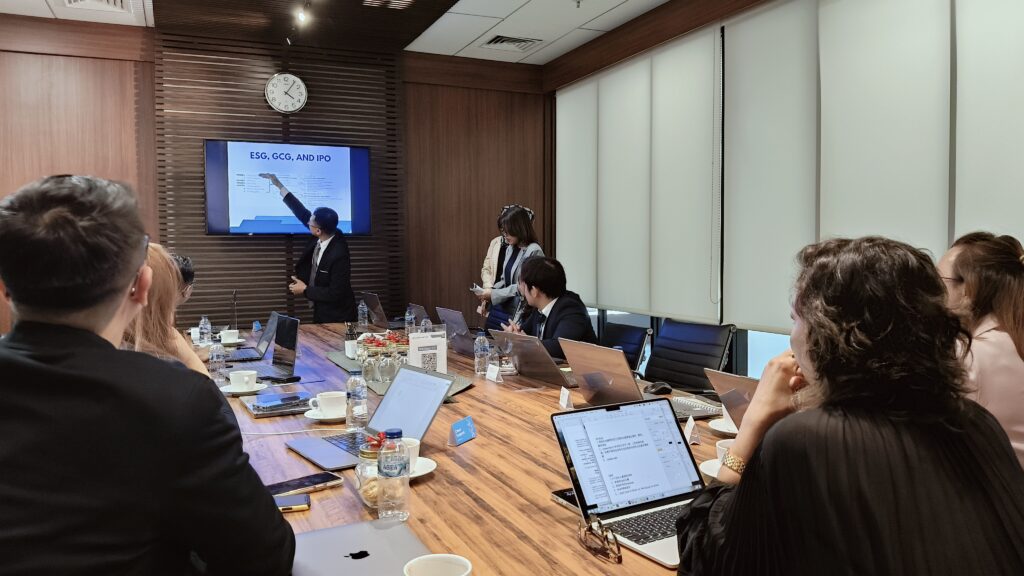In recent years, these three letters, ESG (Environmental, Social, and Governance), have become a hot topic in the global investment landscape. ESG is no longer just an ethical consideration; it has become an indicator of long-term performance and a tool for corporate risk management. The big question is: Does a company now need ESG compliance to go public through an IPO? This question is particularly relevant in Indonesia, where the stock exchange is beginning to transform in line with global shifts toward a green economy and sustainable finance.

An IPO is a crucial milestone in a company’s lifecycle. Beyond raising capital, it exposes the company to greater public scrutiny, especially regarding transparency and social responsibility. Incorporating ESG principles into the IPO process aims to increase the company’s appeal to global institutional investors, reduce reputational and legal risks stemming from unsustainable business practices, and demonstrate a company’s preparedness to face environmental, social, and governance challenges in the future.
Many investors today refuse to invest in companies that lack a clear commitment to ESG. Some major investment institutions even consider only portfolios with specific ESG ratings. The Indonesia Stock Exchange (IDX) and the Financial Services Authority (OJK) have taken preliminary steps to promote ESG disclosures through various initiatives such as the Sustainability Reporting Guidelines, Indonesia’s Green Taxonomy, and the issuance of Green Bonds and Green Sukuk. However, there is currently no explicit regulation requiring all prospective issuers to adopt ESG criteria as a prerequisite for IPO. ESG remains a value-added component and not yet a mandatory one.
In many developed countries such as the European Union and the United States, ESG is increasingly becoming a “must-have” in the IPO process. For instance The EU’s Corporate Sustainability Reporting Directive (CSRD) mandates detailed ESG disclosures. The U.S. Securities and Exchange Commission (SEC) is strengthening climate risk disclosure requirements for public companies. Meanwhile, Singapore and Hong Kong already require ESG reports as part of IPO documentation submitted to their stock exchange authorities. These developments suggest that ESG is no longer just an optional enhancement but is evolving into a core element of IPO readiness.
Several obstacles prevent ESG from becoming a formal IPO requirement in Indonesia, such as limited capacity among SMEs and startups to meet complex and costly ESG standards, low awareness among market participants regarding sustainability as a risk mitigation tool, and lack of concrete sanctions for companies that fail to report or comply with ESG principles.
Although ESG is not yet a formal IPO requirement in Indonesia, policy directions are clearly moving in that direction. In the near future, we may see stronger ESG regulations as part of pre-IPO documentation, standardized ESG scoring systems for investors to use as benchmarks, and “Green IPO” classifications for companies meeting sustainability criteria. If this direction continues, ESG will not just be a “value proposition” but a gateway to future capital markets.
As of now, ESG is not formally required for IPOs on the Indonesia Stock Exchange. However, evolving regulations and growing market pressure suggest that companies unprepared for ESG will increasingly fall behind. With more investors prioritizing sustainability, companies that integrate ESG early will be more trusted, more competitive, and better positioned for the future. An IPO is no longer just about financial numbers, it’s about vision, responsibility, and impact. ESG is fast becoming the compass for future market success.
If you, a prospective client, have further inquiries about the topic discussed above, Schinder Law Firm is one of many corporate law firms in Indonesia that has handled numerous similar matters, with many experienced and professional corporate and civil lawyers in its arsenal, making it one of the top consulting firms in Indonesia. Feel free to contact us at info@schinderlawfirm.com for further consultation.
Author:
Dewi Susanti